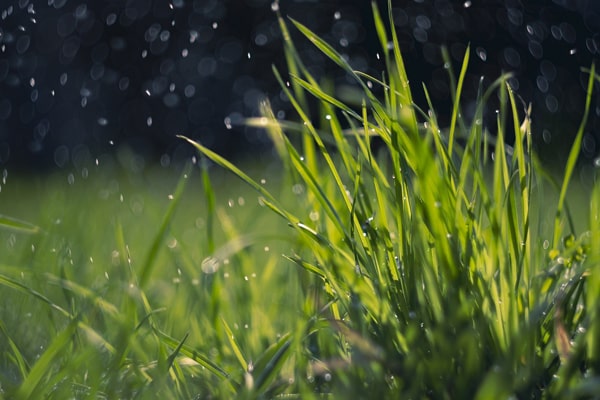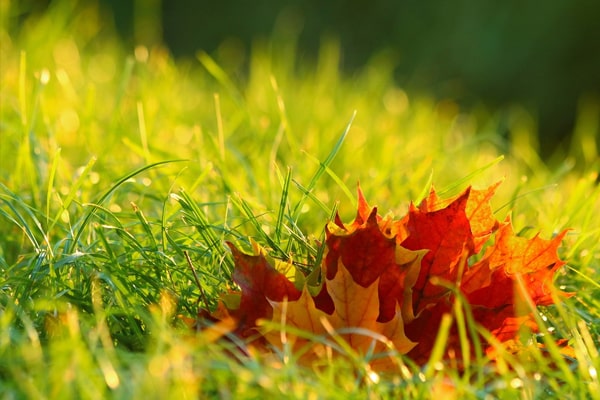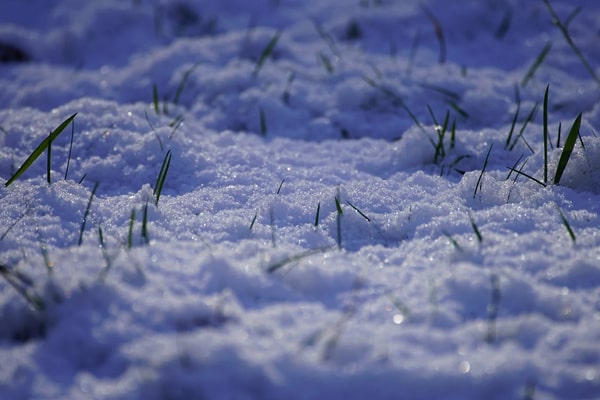Weed control is not something you set and forget. This must be done every season to maintain a healthy garden or farm. Weeds compete with crops for nutrients, water, and sunlight, reducing yields and lower-quality produce.
- In spring, weeds can quickly overrun fields and gardens, choking out desirable plants.
- During summer, weeds can continue to spread rapidly, especially in warm weather.
- In fall, controlling weeds is essential to prevent them from going to seed and spreading further.
- Some weeds can survive in winter and become a problem in the following seasons.
By regularly removing weeds, farmers and gardeners can ensure that their crops have the best chance to thrive. This means less work later on and healthier plants overall. So, whether spring, summer, fall, or winter, staying on top of weed control is essential for a successful growing season.
Contents []
Controlling Weeds During Spring

Spring brings new life to gardens and farms but also challenges controlling weeds. As temperatures rise and daylight increases, weeds sprout vigorously, competing with crops for space, water, and nutrients.
One of the main challenges during spring is the rapid growth of weeds, which can quickly overwhelm fields and gardens if not managed. Here are some solutions to control weeds in springtime:
Tilling: The best way to get rid of weeds is to cultivate the soil when weeds are still small and haven’t established deep roots. Using a hoe or a rake, break up the soil to disrupt weed growth. That said, avoid going overboard with the tilling. This can disrupt the soil structure and promote weed seed germination.
Mulching: Applying a layer of mulch, such as straw, wood chips, or compost, around plants helps suppress weed growth by blocking sunlight and preventing weed seeds from germinating.
Mulching also helps retain moisture in the soil, reducing the need for frequent watering.
Consider laying landscape fabric or cardboard underneath mulch to smother weeds and prevent their growth. You can also solarize bare soil areas by covering them with clear plastic to kill weed seeds and pathogens.
Crop rotation: Crop rotation is a long-term strategy that can reduce weed growth in spring. By alternating crops each season, the life cycle of weeds is disrupted. This discourages weeds from growing at all. Growing cover crops in springtime also helps suppress weeds and improve soil health.
Hand weeding: Hand weeding is a labor-intensive but effective method for removing weeds in spring. You can pull the weeds by hand or use a tool like a standup weeder to remove weeds growing in nearby crops. Hand weeding is particularly useful for controlling perennial weeds, which can regrow from roots left in the soil.
Healthy plants: Promoting a healthy growing environment for crops can help suppress weeds naturally. This includes maintaining proper soil fertility, ensuring adequate irrigation, and sufficient spacing between plants to reduce competition. Healthy, vigorous crops are better able to outcompete weeds for resources.
Weed Control During Summer
As the season transitions from spring to summer, the temperature rises. This leads to longer days and lots of sunshine – creating the ideal condition for weed growth. That’s why weeds are at their most stubborn during the summer season. Here are some solutions to control weeds in summertime:
Tilling: Weeds grow and multiply quickly in summer. If left unchecked, your garden could be overwhelmed by weeds and compete with plants for water and sunlight! Regular cultivation can help address this. Tools like hoes or cultivators to break up the soil and remove weeds can prevent them from establishing deep roots and spreading further.
Mulching: Summer days will dry the soil and cause plants and weeds to compete for water. If weeds outcompete your plants, the plants will dry out and won’t survive summer.
Applying a layer of mulch, such as straw or wood chips, around plants can suppress weed growth by blocking sunlight and preventing weed seeds from germinating. Mulching also helps retain moisture in the soil, reducing the need for frequent watering.
Stop weeds from going to seed: Some weeds can produce a large number of seeds during summer, leading to increased weed pressure in the future. To address this, prevent weeds from going to seed by regularly removing them before they have a chance to reproduce. This can help reduce the weed seed bank in the soil and prevent future weed infestations.
Weed Management During Fall

The temperature is starting to dip, but weeds remain a threat in the garden! How to control weeds in the fall season? Here are some tips:
A combination of tilling and hand weeding: Just because the weather is cooling down doesn’t mean fewer weeds will sprout in the garden. Weeds can regrow from their roots left in the soil! If bits of roots are still all over your garden, it is only a matter of time before weeds sprout and overtake the place!
Dandelions and thistles can be particularly stubborn and difficult to eliminate completely. The best way to solve weed regrowth is a combination of tilling and hand weeding. This combination minimizes the chances of perennial weeds growing and establishing their roots deeper into the soil. Thankfully, the soil is quite soft in the fall season, so pulling weeds by hand is easier.
Natural herbicides: Winter annual weeds like chickweed and annual bluegrass germinate in the fall and grow throughout the winter months. These weeds can be prevented by applying pre-emergent and post-emergent herbicides. But if you want to go the all-natural route, you can try using natural herbicides like:
- White vinegar
- Clove oil
- Baking soda
- Lemon juice
You can also mix natural solutions with dishwashing soap and then spray all over weeds.
Mow the grass: Fall season is the time when weeds produce seeds. A great strategy to minimize weed growth in the following spring is to reduce their chances of reproducing. Mowing the lawn is a great way to prevent weed seeds from germinating and taking root.
Remove garden debris: Clear out any garden debris and fallen leaves, as they can provide shelter for weed seeds.
Grow cover crops: fall is an ideal time for planting cover crops. Cover crops, such as rye or clover, can help suppress weeds by outcompeting them for resources and shading the soil. They also improve soil health by adding organic matter and nutrients when they are incorporated into the soil in the spring.
Organic mulch from fallen leaves: Fallen leaves are abundant in autumn. Make the most out of fallen leaves by turning them into organic mulch. Mulch will block sunlight and prevent weed seeds from germinating. Mulching also helps retain moisture in the soil, which is beneficial as temperatures start to drop. Shred the leaves, add straw, and then layer on the flower beds thickly.
Controlling Weeds During Winter

The harsh winds and snow might discourage weeds from growing in the garden. But some winter annual weeds are just waiting to sprout from the soil despite the freezing cold. Here are ways to suppress weeds in winter:
Hand-weeding: Perennial weeds like thistles and dandelions tend to go dormant underground during winter. When weeds are small with shallow roots, pull them from the soil by hand. Make sure none of the roots are left in the soil. Weeding when the weeds are small and manageable is much easier on the back.
Stop weed germination: Winter can also provide an opportunity for weed seed germination. Some weed seeds require a period of cold temperatures followed by warmer weather to germinate. This phenomenon, known as stratification, can lead to weed seedlings emerging in the winter. To prevent this, farmers and gardeners should continue removing weeds before they can go to seed.
Apply chemical or natural herbicides: While they may not grow as vigorously as in other seasons, winter annual weeds like bluegrass and chickweed can still compete with crops for resources and become a problem in the spring.
Pre-emergent herbicide applications in the fall can inhibit the germination of winter annual weeds and reduce their populations in the winter and early spring.
An alternative to pre-emergent herbicides is organic herbicides. Some solutions are available at your local stores but most of the time, online has more options when looking for gardening supplies. You can also make your own anti-weed solution/mixture using distilled white vinegar, lemon juice, or diatomaceous Earth.
Caring for the garden throughout the year is key to maintaining the health of your plants and all that lives in it. The essential thing to remember is to minimize the chances of weeds going to seed so that by the spring season, there’ll be fewer weeds to pull.



